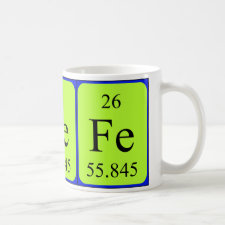
Authors: Sun WQ, Tan R, Zheng WG, Yin DH
Article Title: Molecularly imprinted polymer containing Fe(III) catalysts for specific substrate recognition.
Publication date: 2013
Journal: Chinese Journal of Catalysis
Volume: 34
Issue: (8)
Page numbers: 1589-1598.
DOI: 10.1016/S1872-2067(12)60624-X
Abstract: A series of molecularly imprinted polymers (MIPs) containing equal amounts of iron(III) were prepared by the polymerization of acrylamide and ethylene dimethacrylate in the presence of the template of o-, m-, or p-nitrobenzyl alcohol (NBA) and a FeCl3 complex. The samples were characterized by scanning electron microscopy, N2 adsorption, and Fourier transform infrared spectroscopy. The catalysts exhibited high catalytic activity and unique substrate recognition in the oxidation of benzyl alcohol derivatives in water using 30% H2O2 as the oxidant. The conversion of p-NBA was 80% over the p-Fe(III)-MIP catalyst when the template molecule was p-NBA, which had a good fit with the substrate. However, the conversion of p-NBA was less than 58% over o-Fe(III)-MIP or m-Fe(III)-MIP due to the mismatch of the substrate with the cavities of the Fe(III)-MIP. The results indicated that the Fe(III)-MIP samples contained molecular recognizable shapes and sites in their cavities that match the corresponding substrate. The special recognizing cavities of the Fe(III)-MIP catalyst exhibited unique substrate recognition, and therefore the selectivity for the substrate was improved.
Template and target information: o-nitrobenzyl alcohol, m-nitrobenzyl alcohol, p-nitrobenzyl alcohol, NBA



Join the Society for Molecular Imprinting

New items RSS feed
Sign-up for e-mail updates:
Choose between receiving an occasional newsletter or more frequent e-mail alerts.
Click here to go to the sign-up page.
Is your name elemental or peptidic? Enter your name and find out by clicking either of the buttons below!
Other products you may like:
 MIPdatabase
MIPdatabase









